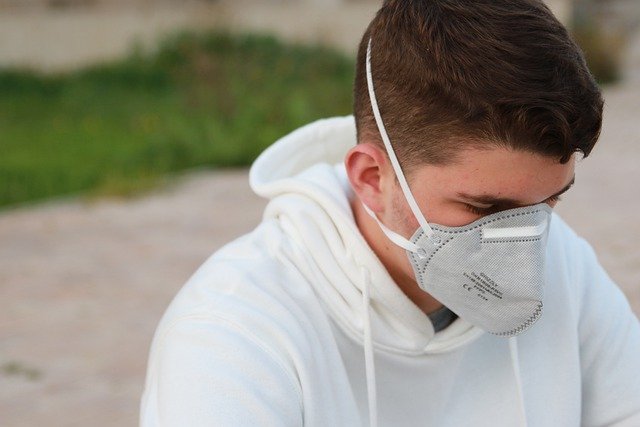DFN PROJECT SEARCH ANNOUNCES STRONG PERFORMANCE DATA DURING THE PANDEMIC

DFN Project SEARCH (@dfnsearch), a leading supported employment charity for young people with learning disabilities and autism, has announced impressive job outcomes during the Pandemic.
New data for the class of 2019-20 shows that:
-
209 interns secured employment during the national lockdown
-
175 interns found full-time, non-seasonal jobs paid at prevailing wage and in an integrated workplace
-
The average hourly salary was £8.73, above the National Living Wage for all age groups
-
No gender pay gap, female interns earn the same (or slightly more) as male interns
-
Interns worked on average 25 hours a week, considerably more than the 16 hours government definition of full-time work
-
25% of interns were from a BAME background, nearly twice as many as the UK population of 13%
Despite the pandemic forcing the cancelation of approximately 60% of placements or internships in the UK, DFN Project SEARCH continued to run programmes all over the country, with young graduates smashing stereotypes by working in frontline roles with NHS and Local Authority.
Compared to the general population, young people with a learning disability are significantly less likely to be in full time paid employment with nationally only 5.1% of people with special educational needs and disabilities gaining permanent paid employment in the UK.
DFN Project SEARCH CEO Claire Cookson said:
“The past 12 months have been transformational as we have shown great ingenuity to bring further momentum to our vision of helping young people with learning disabilities and autism get great jobs.”
DFN Project SEARCH has delivered strong job outcomes for its interns during the Pandemic.
New data for the class of 2019-20 shows that:
-
209 interns secured employment during the national lockdown
-
175 interns found full-time, non-seasonal jobs paid at prevailing wage and in an integrated workplace
-
The average hourly salary was £8.73, above the National Living Wage for all age groups
-
No gender pay gap, female interns earn the same (or slightly more) as male interns
-
Interns worked on average 25 hours a week, considerably more than the 16 hours threshold
Healthcare, retail and food service were the top three employment sectors, with young interns performing in frontline roles, filling skills shortages and challenging the social hierarchy.
Twenty-five per cent of interns in the class of 2019-20 were also from a BAME background, nearly twice as many as the UK population of 13%, as the charity delivers on a further aspect of its social inclusion targets.
Data show that interns have similar employment outcomes regardless of their ethnicity, type of disability or gender.
The figures reflect the response of DFN Project SEARCH during the Pandemic, bringing its community together and driving collaboration to ensure that young people on DFN Project SEARCH supported internships stayed on their journey to full time, integrated, competitive employment.
The performance is even more impressive considering that disabled employees have had higher than average redundancy rates during the Pandemic.
Latest Government research shows that 71 per cent of disabled people employed had been impacted by loss of income, furlough, unemployment or feeling at risk of redundancy. The insight also found that 42 per cent of employers felt discouraged from hiring disabled applicants.
DFN Project SEARCH offers its partners a high-performing evidenced-based programme, materials and support structure to effectively support young people with learning disabilities and autism to transition from education into full-time, integrated, competitive employment.
The charity has ambitions to get 10,000 young adults with learning difficulties and autism into full-time paid jobs over the next decade and 20,000 in the next 15 years.
DFN Project SEARCH CEO Claire Cookson said:
“The past 12 months have been transformational as we have responded to the challenges of the Pandemic whilst smashing stereotypes through our young graduates working in frontline roles.
“Our interns have certainly risen to the challenge in frontline roles and continue to do amazing work across local authorities.
“Their work ethic has shone through, and they have shown themselves to be able to understand and adhere to new ways of working and follow stringent health and safety guidelines.
“The success they are having is testament to the effectiveness of our pioneering transition to work programme which equips our interns with so many employability skills for jobs that continue to make a difference to the country as we exit the Pandemic.
“These developments and progress are certainly working to create a greater awareness of young people going through supported internships and the value they can bring to society.”
Today DFN Project SEARCH has 76 internationally recognised programmes across the UK, Ireland and Iberia, and has supported over 1600 interns into work, nearly 1400 of which meet Project SEARCH’s success criteria. The criteria means that the work is over 16 hours per week, is non seasonal, is paid the prevailing wage for the role and that the work is in an integrated setting.
On average 60 per cent of graduates obtain full-time paid employment meeting these criteria, which is well beyond national statistics of 5.1 per cent. Yet an additional 10 per cent find some type of paid employment, meaning the lives of 70 per cent of graduates are changed for the better.











Responses